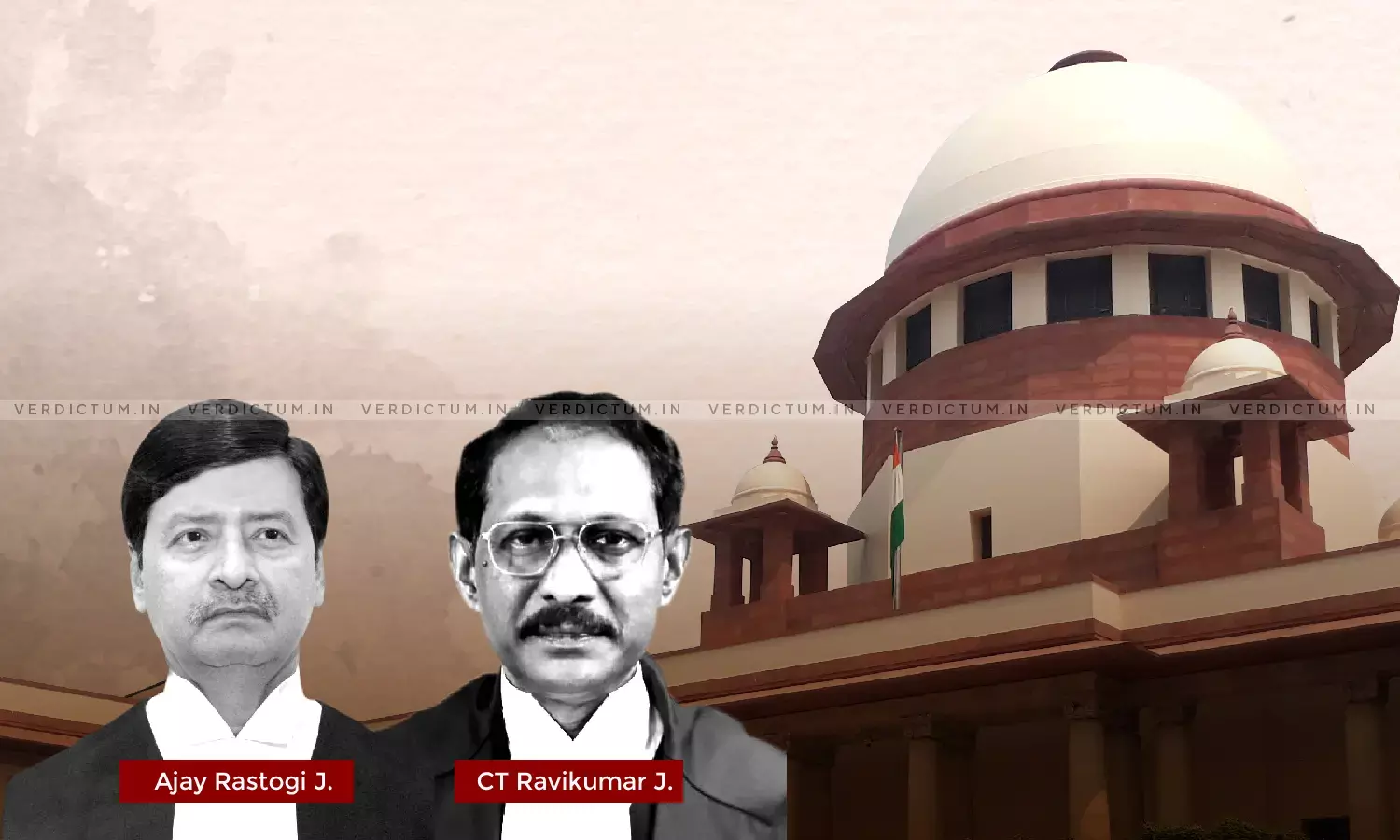Detaining Authority Supplying Illegible Copies Of Documents To Detenu Violates His Right Under Article 22(5) Of Constitution- SC

The Supreme Court has held, "...the legal position has been settled by this Court that the right to make representation is a fundamental right of the detenu under Article 22(5) of the Constitution and supply of the illegible copy of documents which has been relied upon by the detaining authority indeed has deprived him in making an effective representation and denial thereof will hold the order of detention illegal and not in accordance with the procedure contemplated under law."
The Bench of Justice Ajay Rastogi and Justice CT Ravikumar observed that the right to make a representation implies that the detenu should be provided with all the information which will enable him to make an effective representation and refusing to supply the documents or supply of illegible or blurred copies of the documents relied upon by the detaining authority amounts to a violation of Article 22(5) of the Constitution.
The Court upheld the Manipur High Court Judgment setting aside an order of Detention passed under the Prevention of Illicit Traffic in Narcotic Drugs and Psychotropic Substances Act, 1988 on the premise that the appellants failed to supply the legible copies of documents which were relied upon by the appellants while passing the order of detention under the provisions of the Act 1988.
In this Appeal, the State submitted that, at no stage, until the passing of the final order of detention by the detaining authority, no objection was raised by the detenue that all the relevant documents relied upon by the detaining authority in the grounds of detention were illegible or blurred and that the objection was raised, for the first time, before the High Court and not at any stage before the detaining authority.
On the other hand, Amicus Curiae Prerna Singh contended that once it is settled that the supply of legible copies of documents relied upon by the detaining authority is a sine qua non for making an effective representation to be a part of his fundamental right under Article 22(5) of the Constitution and that the fundamental right has been infringed, even if it was not raised before the detaining authority, that will not take away the fundamental right conferred by law.
The Court noted that Article 22(5) of the Constitution confers two rights on the detenu, firstly, the right to be informed of the grounds on which the order of detention has been made and, secondly, to be afforded an earliest opportunity to make a representation against the order of detention.
The Court further observed that "the right of personal liberty and individual freedom which is probably the most cherished is not, in any manner, arbitrarily to be taken away from him even temporarily without following the procedure prescribed by law and once the detenu was able to satisfy while assailing the order of detention before the High Court in exercise of jurisdiction Article 226 of the Constitution holding that the grounds of detention did not satisfy the rigors of proof as a foundational effect which has enabled him in making effective representation in assailing the order of detention in view of the protection provided under Article 22(5) of the Constitution, the same renders the order of detention illegal"
Accordingly, the Court dismissed the appeal.
Cause Title- The State of Manipur & Ors. Vs. Buyamayum Abdul Hanan @ Anand & Anr.
Click here to read/download the Judgment

